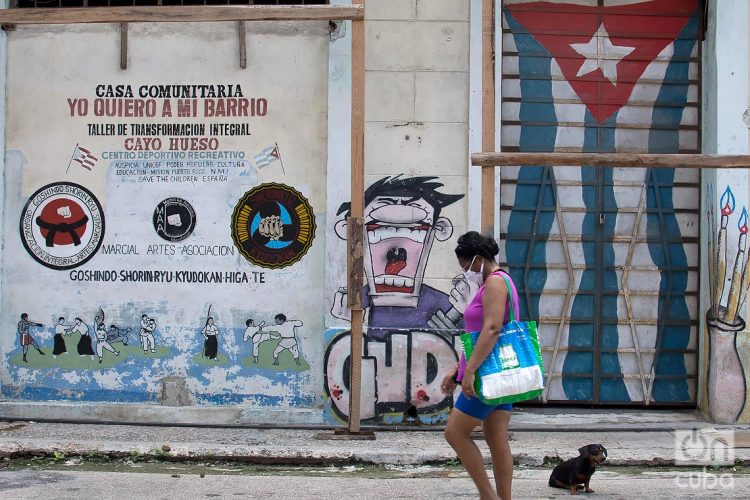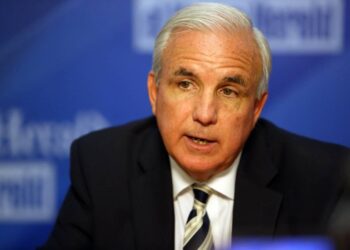The second Whereas of the Preamble to the Universal Declaration of Human Rights announces “…the advent of a world in which human beings shall enjoy freedom of speech and belief.”1
Since the Declaration was proclaimed in 1948 to 2020, the wounds of inequality among human beings, poverty, hunger, privation of millions of people, social and political rights, have only gotten worse.
One of the objectives of the Universal Declaration of Human Rights was that they be protected in a regimen of Law, so that human beings would not have as their only recourse the rebellion against tyranny and oppression.
Therefore, human rights are not only a catalog of ethical statements that should serve as a social and political reference for states and citizens of the world, but are also a guarantee of the existence of a legal basis that should form a protection regimen for individuals and groups, from the local to the regional to the universal.
The legal regimen that the Declaration speaks of is already made up of innumerable international human rights instruments, practices, institutions, procedures, principles, interpretations, jurisprudence, constitutions and national laws.
It is very interesting that Article 1 of the Declaration enshrines the duty of human beings to behave fraternally with one another. Fraternity, the lesser known and used emblem of those that made up the motto of the French Revolution, is the starting point of this 1948 document, based on the recognition of the intrinsic dignity of human beings.
I also believe that fraternity should be the principle, together with the reason inherent to humanity and equality, by which we must guide ourselves in our current desire to nurture a productive dialogue between groups, people, movements, associations, unions, entrepreneurs, with the State and the government, in a climate of respect for the legal institutions of the country, a useful and essential dialogue for the health of the republic in Cuba.
Article 2 of the aforementioned document declares that all people have all the rights without distinction of the political opinion that each one has, which puts us face to face with a basic principle of participation: no one can be excluded from the dialogue for having and expressing political opinions different from a state, party or power apparatus in general, because there exists the right not to be politically discriminated against and because the first meaning of dialogue is to resolve controversies, differences, different points of view, opposing analyzes, different theses on the same problem, alternative proposals on a common dilemma.
Article 5 of the Universal Declaration establishes that no one shall be subjected to inhuman or degrading treatment. At a political moment in which dialogue is presented as a petition, when in reality it is a right of every citizen in Cuba, it is necessary for the State to preserve, through the prudence of its officials, a discourse of understanding of the differences and the diversity of Cuban society, typical of the magnanimity of an organized, sovereign, independent political power, legitimized by a recently released Constitution.
Individuals can ask for the unusual, groups aspire to radical changes, young generations can suffer from participation anxiety, for the more mature population it is logical that they feel the passage of their last political train, but what does not make sense is that the State responds to all these possibilities with a discourse of criminalization of protest, resistance, dissent and criticism.
It is well known that the channels of dialogue that have been institutionalized in Cuba, since 1976, go through a local People’s Power imprisoned in its lack of autonomy, and its rendering of accounts turned, on many occasions, into a ritual of participation more formal than effective.
The 1992 Constitutional Reform tried to resolve the gaps of lack of credibility, leadership and power that existed in People’s Power, there where the State seemed most democratic, in the municipalities.
To improve this situation of disconnection, which at the time was plastically called the search for the missing link in People’s Power, the People’s Councils were created, which still exist. The constitutional regulation did not hesitate to call them the entity with the most power in the local space, but political practice drowned them in tasks proper of the emergency of the Special Period.
Until today the assembly dialogue in Cuba is minimal. You do not see dialogue in the National Assembly, you do not see dialogue in television programs dedicated to political issues, rather presentations of papers, linear speeches are observed, almost never questioned, criticized, or at least dialogued, analyzed, compared.
The new Constitution of the Republic takes a step in favor of healthy, comprehensive, respectful, tolerant and democratic dialogue, by recognizing human rights and dignity as the supreme value that sustains them, this in Art. 40 of the great text, and In the next article it establishes that human rights are universal and interdependent, or what is the same, all rights depend on each other and all human beings are considered in the regulation.
The same Cuban Constitution, in Article 42, prohibits discrimination for any personal condition or circumstance that implies a distinction that is harmful to human dignity. It is evident that distinguishing someone to give them a different treatment, due to their political ideas and their expression, should not be allowed within the prevailing legality in Cuba.
According to the previous criterion, a political, cultural, economic, scientific dialogue, or of any kind, cannot start from discriminatory principles that affect any of the parties involved. In the same way, it is impossible to propose a legitimate dialogue starting from ignorance of human rights in general, and of those of one of the dialoguing parties, in particular.
It seemed that the 2019 Constitution would finally resolve one of the ethical mandates of the 1948 Universal Declaration, which, in its article 8 states that: “Everyone has the right to an effective remedy by the competent national tribunals for acts violating the fundamental rights granted him by the constitution or by law.”2
To achieve a useful and effective dialogue, in addition to being edifying, in Cuba, between parties or subjects with different political ideas, comprehensive respect for human rights is necessary, and for this their judicial protection is essential, which will have as one of its first consequences, a jurisprudence on human rights that will serve as a guide for dialogue in Cuba.
The current Constitution regulates in its Art. 99 the possible claim before the courts for the restitution of the rights and the obtaining of the corresponding reparation or compensation. The same article establishes that the law will regulate which rights will be protected in this way and the procedure to achieve it, which would have features of the recourse of defense, of such importance in Latin America since the Mexican Constitution of 1917.
The Constitution itself, in its Twelfth Transitory Provision, orders the National Assembly of People’s Power, within a period of eighteen months from the entry into force of the Constitution, to approve “the legislative modifications required to make effective the provisions of Article 99.…”3
In October, when the Law for the Claim of Constitutional Rights before the Courts had to be approved, according to the Legislative Schedule itself approved by the same National Assembly, no such bill was presented before the highest body of power in Cuba, nor was there a public clarification on the cause of this delay.
In the same way, the observation of Art. 9 of the Universal Declaration of Human Rights, which states that no one shall be arbitrarily detained, imprisoned or exiled, may also be a timely reference for dialogue in Cuba.
It is known that the new Constitution establishes a system of guarantees of rights that includes principles of due process. Today, more than ever, the guarantee provided for in Article 95 of the Magna Carta must be fulfilled, which considers legal assistance from the beginning of the process, communication of the accused with his family immediately after arrest, and the prohibition of violent treatment of detainees, psychologically and physically speaking, as a right.
It is very important that the authorities in Cuba set the example in terms of compliance with the Constitution, especially since this document does not establish any exception for its violation due to any issue related to National Security, Internal Order or State Security. The only possible limitations to the exercise of some rights are established in the Defense Law and in the event of a prior declaration of the State of Emergency.
In this possible guide, the right to free movement enshrined in Article 13 of the Universal Declaration and in Article 52 of the Cuban Constitution is very important. No person can be deprived of this right without justification and in Cuba illegal deprivation of freedom is a crime. Therefore, no individual can be detained without first having been considered part of a criminal process and secured with a preventive detention measure.
Finally, for this first installment, I will refer to the right to freedom of opinion and expression, which includes, in Art. 19 of the Universal Declaration, not to be harassed or bothered because of opinions, as well as the right to investigate, receive and disseminate these opinions, by the means that is considered, provided that the right of a third person is not violated.
These rights are included in the Cuban Constitution of 2019. The right to information is provided for in Art. 53 of the most important legal document in the country, and freedom of expression is regulated in Art. 54.
Dialogue is a necessity for the democratic development of a state. It is not possible to advance towards a free and just society without legal and safe spaces to discuss state policies and Party decisions, which in the case of Cuba has the obligation to be democratic, as it is the only institutionalized form of legalized political militancy.
Human rights can be a methodological and ethical guide, as a journey and as the end of a search for national reconciliation and openness to inclusive dialogue in Cuba. We will continue along that path in the next installment.
Notes:
1 Universal Declaration of Human Rights.
2 Idem.
3 Constitution of the Republic of Cuba, Havana, 2019.










